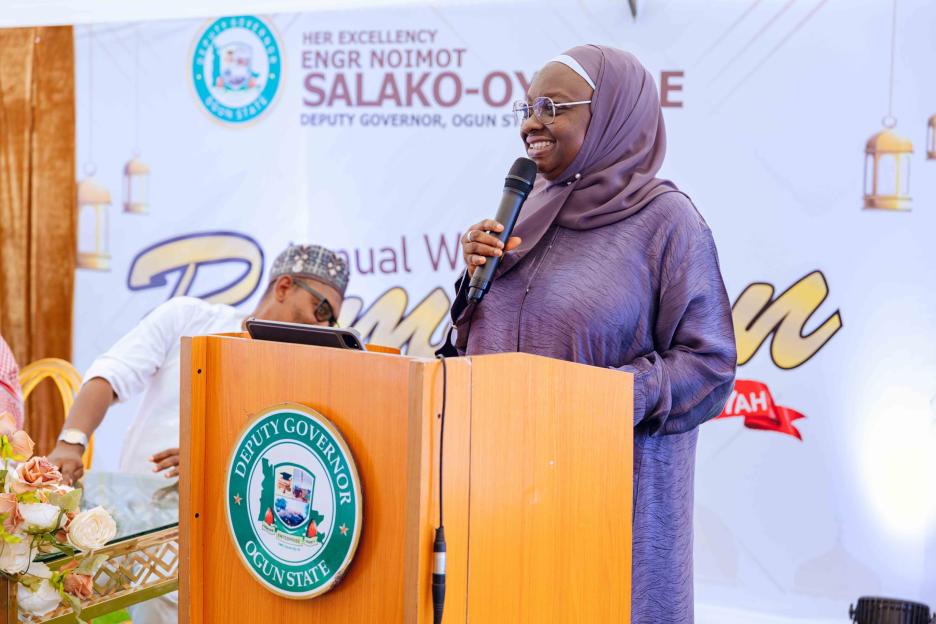Kaduna State has reinforced its position as one of Nigeria’s leading champions for women’s rights and protection, unveiling a far-reaching suite of reforms aimed at safeguarding the dignity, health and future of women and girls.
This renewed commitment was articulated by Governor Uba Sani represented by the Commissioner of Health at the event “Canada Investing in Women and Girls: Sights and Sounds Across Nigeria,” held during the Global 16 Days of Activism Against Gender-Based Violence.
Governor Sani’s message centred on Kaduna’s determination to confront both the visible violence suffered by women and girls and the often-overlooked structural inequalities that quietly shape their lives.
He noted that the state’s approach is grounded in the belief that gender equality is not peripheral to development but central to progress.
“The well-being of women and girls is not an adjunct to development; it is the core of any state that aspires to equity, stability and prosperity,” he said.
The Governor highlighted the commissioning of the Kaduna State College of Nursing and Midwifery, Panbegua, describing it as a deliberate effort to expand the state’s capacity to produce skilled maternal and newborn health professionals.
“When a young woman enters that institution, she steps into a future in which her competence can save lives,” he said, adding that every trained nurse and midwife “shortens the distance between vulnerable households and the care they need.”
He explained that the administration has also pursued innovative solutions to everyday barriers faced by girls, particularly in schools.
The state’s menstrual hygiene programme, which provides sanitary pads to thousands of schoolgirls and supports the production of reusable alternatives, has significantly improved confidence and attendance among adolescent girls.
“Where a pad is available, a future remains open; where it is absent, the doors to opportunity quietly begin to close,” the Governor remarked.
He noted that such interventions, though simple, reinforce the state’s stance that a girl’s dignity and education are non-negotiable.
Kaduna’s determination to protect women extends into the justice system, where the state has intensified its response to gender-based violence.
The Governor emphasized that violence “thrives in silence and impunity,” which his administration is determined to dismantle. Strengthened criminal processes have led to increased convictions, sending a clear message that abuse “will not be excused, rationalised or minimised.”
He stressed, however, that accountability must be paired with survivor support, calling for reliable reporting channels and effective referral pathways that ensure survivors are met with compassion, not barriers.
The Governor explained that the state is building long-term structures not temporary relief efforts that expand opportunities for women to participate meaningfully in the economy.
These include skills development programmes, financial inclusion initiatives and improved market access.
“True empowerment is not delivered through temporary interventions,” he said.
“When women thrive economically”, he added, households become stable and communities more resilient.
“Additionally, Kaduna continues to deploy health workers, nurses, midwives and community health officers to underserved communities, ensuring that essential services reach rural women who often face the greatest risks,” he said.
Governor Sani noted that these investments “recalibrate the distribution of opportunity and protection across our state,” ensuring equitable access to life-saving care.
While celebrating progress, the Governor also acknowledged the challenges ahead, calling for deeper partnerships with Canada, global allies, civil society and community leaders.
“Laws protect, programmes support, but communities transform,” he said, stressing that real societal change happens in homes, schools and places of worship where norms are shaped.
Governor Sani closed his address by reaffirming Kaduna’s unwavering resolve: “Our commitments are not rhetorical; they are visible in the infrastructures we have built, the policies we have enacted, the offenders we have held accountable and the girls who remain in school because their state stood with them.”







